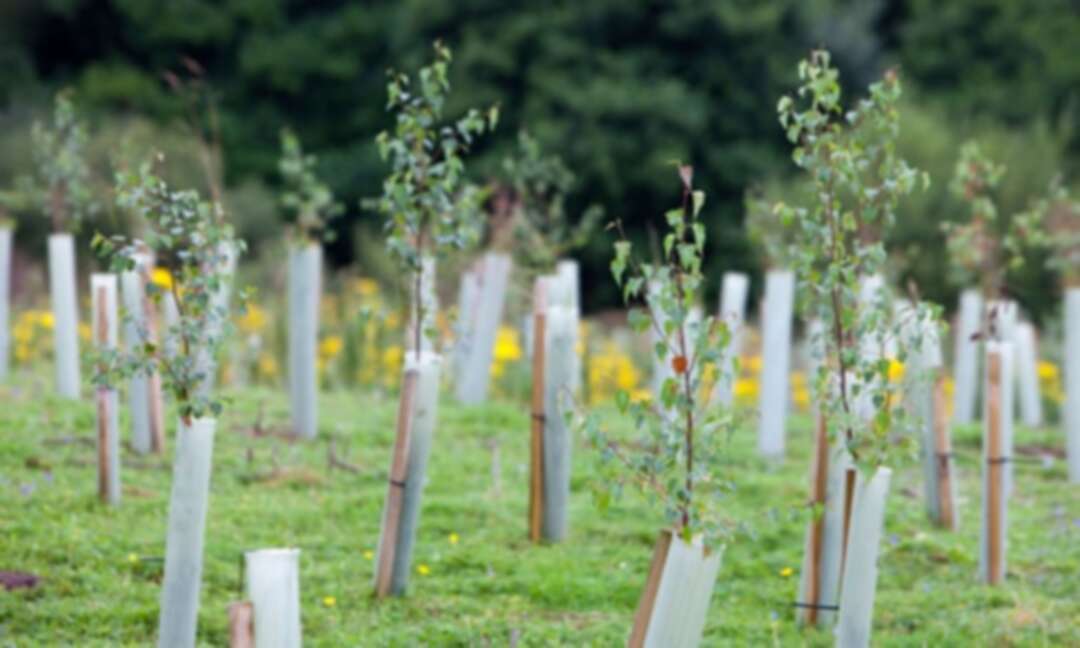-
Invest in green jobs in parts of Britain worst hit by pandemic, report urges

Green Alliance says 16,000 jobs could be created in areas facing most severe employment challenges
Some of the areas of Britain worst hit by the jobs crisis brought on by the pandemic are also those with the highest potential for green job creation, a report says.
About 16,000 new jobs could be created in restoring nature and planting trees in areas where unemployment is set to soar when the government’s furlough schemes end, according to the report from the Green Alliance thinktank. These include urban areas where people have little access to green space, as well as coastal areas and “red wall” areas that were Labour strongholds in the north of England.
Sam Alvis, the head of green renewal at Green Alliance, said the government should invest in nature-based jobs as lockdowns are eased, using money from the £4.8bn fund earmarked for “levelling up”.
Research suggests that for every £1 invested in peatland, local areas receive about £4.60 in economic benefits, while similar investment in woodland areas and salt marshes produces returns of £2.80 and £1.30 respectively.
The future parks accelerator, a project to promote green spaces, has calculated that investing £5.5bn in greening urban areas in the UK would produce £20bn in economic benefits. However, nature restoration is almost entirely missing from the levelling-up fund.
Alvis said: “The opportunity is there for the chancellor of the exchequer to create a legacy of new, high-quality jobs across Britain. Supporting innovation in green jobs will put nature at the heart of the government’s levelling-up agenda and help local communities build back better and greener.”
The report’s authors examined the fifth of parliamentary constituencies in Britain with the most severe employment challenges. They found many in the north of England were close to peatlands that could be restored to carbon sinks, helping the UK to meet its target of net zero greenhouse gas emissions.
The authors also mapped the potential for some widely available “nature-based solutions” to the climate crisis, including tree-planting, restoration of degraded landscapes and the restoration of marine ecosystems, across Britain. Two-thirds of the land most suitable for tree-planting was found to be in constituencies with “worse than average labour market challenges”. The government is falling behind on tree-planting targets.
Darren Moorcroft, the chief executive of the Woodland Trust charity, said: “Increasing native tree cover is a key part of the levelling-up agenda, shaping places people will want to live, visit and invest in. This will help increase employment opportunities as well as leading to happier, healthier communities.”
Many of the coastal constituencies where seagrass could be grown are areas of high job need, with a higher proportion of people on furlough and a lower-than-average increase in employment expected when the pandemic eases. Seagrass is an underwater flowering plant that can act as a carbon sink and nurtures young fish and other vital parts of the marine ecosystem, but which is under threat around the UK coast as 90% of seagrass meadows have been destroyed by overfishing and neglect.
In urban areas, thousands of jobs could be generated by investing in parks and green spaces for health and leisure. A growing body of research suggests that access to green areas has multiple benefits for people’s physical and mental health and wellbeing. Improving such areas in neighbourhoods currently without green space could create 10,800 jobs in areas with the worst post-pandemic jobs prospects, the report says.
Patrick Begg, the director of natural resources at the National Trust, said the pandemic and lockdowns had revealed the benefits of access to green space. “A greener recovery which increases access to nature is within our reach,
The potential jobs identified in the report range from entry-level roles in “shovel-ready” projects to graduate positions, for instance in research and development into nature restoration projects. Entry-level jobs can also help in the development of highly transferable skills such as machine operation, the report says.
source: Fiona Harvey
Levant
You May Also Like
Popular Posts
Caricature
BENEFIT Sponsors BuildHer...
- April 23, 2025
BENEFIT, the Kingdom’s innovator and leading company in Fintech and electronic financial transactions service, has sponsored the BuildHer CityHack 2025 Hackathon, a two-day event spearheaded by the College of Engineering and Technology at the Royal University for Women (RUW).
Aimed at secondary school students, the event brought together a distinguished group of academic professionals and technology experts to mentor and inspire young participants.
More than 100 high school students from across the Kingdom of Bahrain took part in the hackathon, which featured an intensive programme of training workshops and hands-on sessions. These activities were tailored to enhance participants’ critical thinking, collaborative problem-solving, and team-building capabilities, while also encouraging the development of practical and sustainable solutions to contemporary challenges using modern technological tools.
BENEFIT’s Chief Executive Mr. Abdulwahed AlJanahi, commented: “Our support for this educational hackathon reflects our long-term strategic vision to nurture the talents of emerging national youth and empower the next generation of accomplished female leaders in technology. By fostering creativity and innovation, we aim to contribute meaningfully to Bahrain’s comprehensive development goals and align with the aspirations outlined in the Kingdom’s Vision 2030—an ambition in which BENEFIT plays a central role.”
Professor Riyadh Yousif Hamzah, President of the Royal University for Women, commented: “This initiative reflects our commitment to advancing women in STEM fields. We're cultivating a generation of creative, solution-driven female leaders who will drive national development. Our partnership with BENEFIT exemplifies the powerful synergy between academia and private sector in supporting educational innovation.”
Hanan Abdulla Hasan, Senior Manager, PR & Communication at BENEFIT, said: “We are honoured to collaborate with RUW in supporting this remarkable technology-focused event. It highlights our commitment to social responsibility, and our ongoing efforts to enhance the digital and innovation capabilities of young Bahraini women and foster their ability to harness technological tools in the service of a smarter, more sustainable future.”
For his part, Dr. Humam ElAgha, Acting Dean of the College of Engineering and Technology at the University, said: “BuildHer CityHack 2025 embodies our hands-on approach to education. By tackling real-world problems through creative thinking and sustainable solutions, we're preparing women to thrive in the knowledge economy – a cornerstone of the University's vision.”
opinion
Report
ads
Newsletter
Subscribe to our mailing list to get the new updates!






















